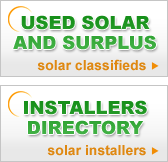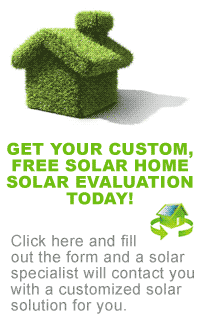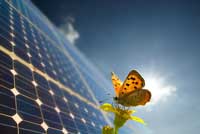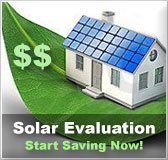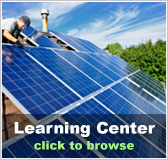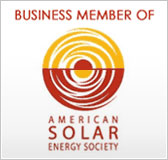Green building incentive program – Arlington County:
-Buildings in Virginia that reach the green building standards by
using the Leadership in Energy and Environmental Design’s (LEED)
green building rating system are considered for bonus heights and/or
densities to building projects on a case-by-case basis with this program.
-If the building is granted this bonus it may receive anywhere from
an additional .15 floor area ratio up to a .35 floor area ratio depending
upon the certification level the building achieves.
Property tax exemption for solar:
-In the state of Virginia, solar energy equipment or recycling equipment
is allowed to be exempt or partially exempt from local property taxes
depending upon the city or county you live in.
-Eligible solar energy equipment is anything that collects and uses
solar energy for water heating, space heating or cooling.
-Some cities and counties do not offer this exemption.
Net metering:
-Net metering is offered on a first-come, first-served basis until
the aggregated capacity limit of customer-generators reaches 1% of
the electric distribution company's adjusted Virginia peak-load forecast
for the previous year.
-Customers are granted a credit each monthly bill for the amount of
energy their system generates. At the end of each 12-month period,
if there is any excess generation left over the customer has the option
of carrying the NEG forward to the next net metering 12-month period
or selling the NEG to the utility.
-The generating customer must establish a power purchase agreement
with the utility prior to the beginning of the net metering period
in order to sell the NEG to the utility at the end of a 12 month period.
-Net metering is available to customers of investor-owned utilities
and electric cooperatives, but not to customers of municipal utilities.
Green power switch generation partners program – TVA:
-Tennessee Valley Authority offers a production incentive for installing
solar photovoltaics, wind, low impact hydropower, and biomass to customers
of participating TVA power companies.
-Green power switch is TVA’s green pricing program which provides
technical support and incentives for installing renewable energy systems.
-Through this program, TVA purchases the solar energy output at $0.12
per kilowatt-hour and all other renewable energy at $0.03 per kilowatt-hour.
-Payments are made in the form of a credit on the local participating
utility’s monthly bill.
-All new participants of the green power switch generation partners
program will receive a $1000 incentive to help offset initial cost
of the system.
Residential renewable energy tax credit:
-This personal tax credit allows the taxpayer to claim a credit of
30% of expenditures including labor costs and installation of qualified
residential solar-electric systems, solar water heating systems or
fuel cells. Small wind-energy systems and geothermal heat pumps can
also be accredited for.
-Solar-electric systems and solar water heaters have a maximum incentive
of $2,000 if placed in service before 2009. There is no maximum incentive
for systems placed after 2008.
-The excess amount of the federal tax credit may be carried forward
to the next taxable year if it exceeds tax liability.
-This can be carried forward until 2016, but after that, it is unknown
if the unused credit will be able to be forwarded.
Residential energy conservation subsidy exclusion:
-This is a personal exemption of 100% of energy conservation subsidies
provided by public utilities.
-The value of a purchase or installation of any energy conservation
measure by a customer such as solar water heat, solar space heat or
photovoltaics will not be included in the customer’s gross income.
-Customers of an electric utility company, who participate in the
utility’s energy conservation program, may receive a rate reduction
of electricity furnished or a nonrefundable credit against the purchase
price of the electricity on each monthly electric bill.
Energy-efficient mortgages:
-This is a federal loan program where homeowners can use EEM (energy-efficient
mortgages) to finance renewable energy technologies in a home.

